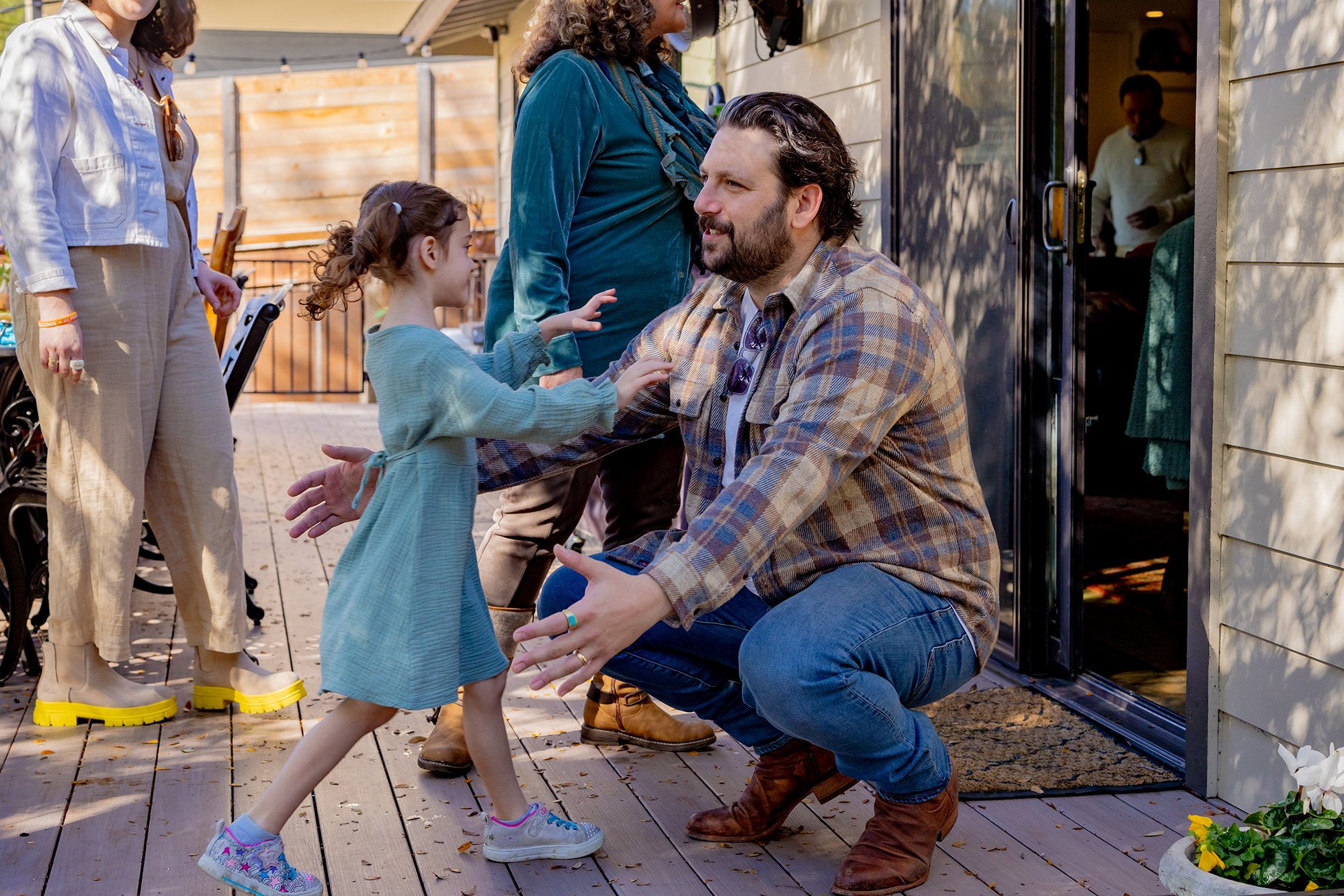
My Ground Rules Playbook
These are my ground rules - my core beliefs - about navigating parenthood in a way that helps our children grow into thriving adults.
I like to say there’s no guidebook for being a parent, but I do believe in fundamental practices that help make parenting a little less stressful and a little more fun.
Ground Rule #1
Core Values
Get clear on your own core values, then choose to live in alignment with those values and model them for your kids. Core values provide a foundation for how your family approaches life intentionally in everyday actions: How you deal with challenges, failures, mistakes, successes, celebrations, milestones, grief and joy.
Ground Rule #2
Well Being
We have to take care of ourselves in order to take care of others. Research shows that self compassion helps us regulate our own emotions and show up with empathy and patience towards others. Taking care of ourselves models self care for our children and it helps us show up more fully for them.
Ground Rule #3
Parenting is a Relationship
The relationship between you and your child is always the priority. Parenting isn’t a set of strategies. We want to support our children; not fix them. When we approach our struggling kids with the lens of compassion, we are in a mindset to teach them the skills they are missing. As author Dr. Ross Greene states, “Kids do well when they can.”
Ground Rule #4
All Behavior is Communication
Tune in. What are your kids really trying to tell you? When kids act out, or don’t do something we asked, they’re trying to tell us something: They may be having trouble meeting expectations and they need our help, or they don’t have the skills or the modeling they need and they’re frustrated. Their behavior is often the only way they know how to communicate their need for help, guidance or support.
Ground Rule #5
Kids Need Routines, Consistency and Limits
Plans, systems, regularity and established practices help create stability and equilibrium for kids. When there is a lack of limits and consistency, kids are forced to try and create stability and accountability for themselves - often by acting out and pushing limits. When they know what to expect and how to respect healthy boundaries, they feel safe and secure.
Ground Rule #6
Kids Need to Be Heard
Your kids want and need to be heard. Allowing them to have input (but not make all the decisions) empowers them. It makes them feel important, gives them a voice and lets them know that even if you disagree, you value them and their experience. The way this is practiced shifts through the stages of childhood and is age appropriate.
Ground Rule #7
Life is Often Hard and Unfair
Kids need the tools to navigate difficulty, challenges and hardship. There is a balance between stepping in when necessary and allowing kids independence in overcoming life’s hurdles. This practice is age appropriate and changes with the stages of childhood, but ultimately leads to children having the life experience and tools they need to navigate problems in college or the working world, while also knowing that you’re there if they need you.
Ground Rule #8
Your Children Are Watching
Ignore the old phrase, do as I say, not as I do. You kids will emulate you, so practicing the behaviors we want from our kids is one of the best tools we parents have. It’s also a powerful way to show them how to recover gracefully from mistakes. Be real. Show them you’re human too and model how you’d want them to react in tough situations. If you tell them to speak respectfully and then go off on the salesperson or the driver on the road, they see that, but you can also own it and create a powerful space to talk about alternative reactions and repair.
Ground Rule #9
Allow Your Child to Be Who They Are Meant to Be
Yes, we want our children to grow up to be responsible citizens and people of integrity, but there are many roads to getting there. Letting your child figure out their own interests and what they want to pursue helps you have a deep and connected relationship built on trust and love, not expectations.
Ground Rule #10
Let Kids Play and Use Their Imagination
Kids’ brains need unstructured down time to develop inner voice, discernment, intuition and creativity. Unstructured creativity and play, especially boredom - which forces our brains to create something out of nothing - is imperative to both right and left brain development. Let them get bored. Encourage hobbies. Have them experiment and try different things. Let technology be part of the solution - connect and engage with your kids when they’re on the computer and find new ways to use tech creatively.
Ground Rule #11
Show Up For Your Kids
Your kids need you. Be there for them and show them that you’re in their corner, and you understand their deep, basic need of being seen and loved by you consistently in times of fun and also in times of emotional stress. The latest brain and attachment research by Drs. Daniel Siegel and Tina Payne Bryson show us that, “When a child knows she can count on you, time and again, to show up—when you reliably provide safety, focus on seeing her, and soothe her in times of need, she will trust in a feeling of secure attachment. And thrive!”
Ground Rule #12
Communication is Key
Keep the door open. Communication is not bombarding your child with questions. It's spending time (quality vs. quantity is important here) that allows them to create a relationship with you that is trusting and open, where they feel safe sharing what’s really going on for them. If you start with open and non judgemental communication based on respect and dignity when they are young, you build a foundation that will help you be their go-to person during the tough teen years and as they grow into adults.
Ground Rule #13
Choose Your Battles
Some days are going to be tougher than others. You have to decide which battles are most important and prioritize them depending on the day. If there is a lot going on, it doesn't help to be on your child about everything. Choose what really needs your attention.
Ground Rule #14
Don't Assume Your Child Understands What You’re Asking Them to Do
Teach them how to do it, by modeling and then letting them practice. You may have to teach them repeatedly, but taking the time now to show them what your expectations are will be worth it later. It’s all about attention and teaching. Make sure you have your child’s full attention when you ask them to do something, model how you want it done and have them practice, so you can both be on the same page.
Ground Rule #15
Use Play and Humor
Lighten up and laugh at yourself and your own humanity and learn not to take your kids - especially teenagers - so seriously. Take a mindset of positive intent - assume your child loves you and whatever is happening is more about them and less about you - see what’s underneath their behavior and show them how it’s not always necessary to take things to heart.
Ground Rule #16
READ READ READ
Read to your children and have them read to you. Creating a language-rich environment helps their brains develop, teaches them about the world and gives your family a shared activity around which to build communication, play time and trust. And it doesn’t matter what you read: Graphic novels, science textbooks or magazines. Just read.
